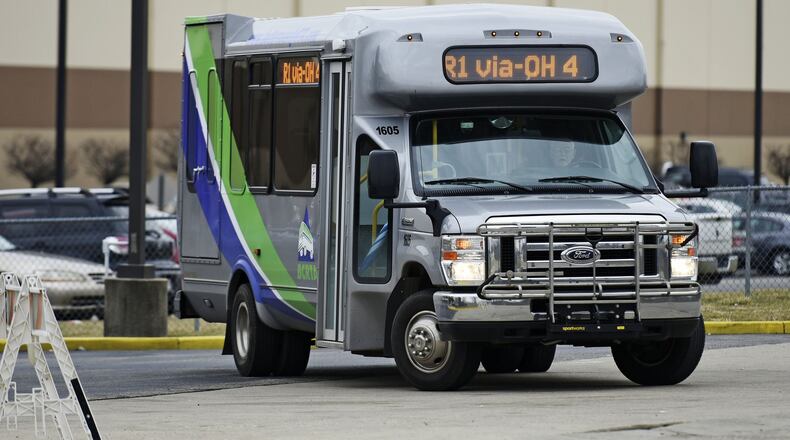Briggs said the proposed bus route could begin operations as soon as late spring/early summer. The proposed route would run every two hours and start from the South Dayton hub to the Towne Mall and Atrium Medical Center in Middletown, then travel down Cincinnati-Dayton Road to Ohio 63 then head to the Cincinnati Premium Outlets and the new businesses on Gateway Boulevard. He said the proposed route and stops have not been completely determined.
According to BCRTA, the costs would vary depending on the number of hours of service each day such as operating the bus from 6 a.m. to 8 p.m. or from 6 a.m. to midnight; if an additional bus would be added during peak hours; or if there will be Saturday service.
An estimated annual base cost ranges from $229,500 to $290,700 for standard service; adding a bus during peak hours drives the cost up to $351,900 to $413,100. It would cost an additional $27,000 to add service on Saturdays, Briggs said.
He also said it takes about two to three years to develop a consistent ridership. Briggs said when bus routes between Hamilton and Middletown as well as the route between Middletown and Oxford started, there were about 200 riders a month. Both routes have built up to more than 1,300 passengers a month. In 2016, BCRTA recorded 600,000 passenger trips on all of its routes.
In addition, BCRTA works in partnership with Metro who provides express bus service from West Chester to downtown Cincinnati during the work week.
About 50 percent of the costs would be paid for by a federal grant and the remainder of the costs would be covered by Monroe and Middletown. Briggs said the agency is looking for other partners to help cover the local matches.
City Manager William Brock said the bus service would cost the city between $75,000 to $100,000 a year. He said the benefit would be to see increased employment at local businesses, but not many people would use the bus service at first.
“The intial thought was to get people to jobs at the commerce areas,” he said.
Jennifer Patterson, assistant to the city manager, told council that the city’s manufacturers, distribution and logistics employers say there is a need for employees from a wider area.
“It’s also important with site selectors (for communities) to have mass transit,” she said.
Councilman Dan Clark questioned how many Monroe residents would use the bus service. Vice Mayor Suzi Rubin agreed that it would take time to grow, but added “you have to start somewhere.”
Councilman Jason Frentzel said he thought some Monroe people would use it to provide reliable transportation for workers.
Council agreed to have the city’s administration to continue the conversation with BCRTA and Middletown.
About the Author

